Browning Hi-Power is a single-action, semi-automatic pistol designed by the legendary John Browning in 1925. It was the last pistol designed by Browning and aimed to meet the requirements of the French military. The pistol is chambered for the 9mm and .40 S&W calibers.
Introduction
The Browning Hi-Power is also referred to as: HP, HP 35, GP 35, FN Hi-Power, and FN HP and has some other designations. The Hi-Power became one of the world’s most successful and widely used military pistols, alongside the Colt M1911 and Walther PP. The military and law enforcement have used it in about 90 countries. At one time, most NATO nations used it. More than 1 million of these pistols have been made.
Development
Designed in 1925, Hi-Power was intended for the French military despite their requirement that could be met by Browning’s M1911 design; however, that didn’t happen because, at the time, he had already sold the right of this successful pistol to the Colt company. That decision led to the entirely new pistol based on the patterns of the now legendary M1911. Two years after Browning’s death, in 1927, the Hi-Power design was patented in the United States of America.
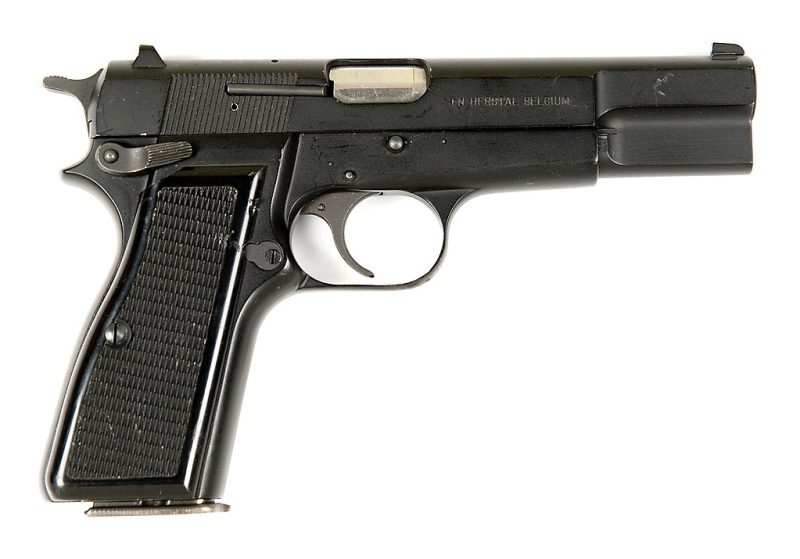
The design was acquired by a Fabrique Nationale (FN) of Belgium, and their engineers, led by Dieudonne Saive, finalized Browning’s design. A few years later, in 1934, Hi-Power was complete and ready for production. Next year, he was recognized and adopted by the Belgian Army, which led to the mass production of the pistol during the same year. In the years coming, Hi-Power was adopted by Belgian Law Enforcement and many other countries, such as the United Kingdom, Australia, and Canada.
Since it appeared, Browning Hi-Power was constantly improved. Its production was licensed to Argentina, Canada, Indonesia, and possibly some other countries. Unlicensed copies of this pistol were produced in China, Hungary, and possibly elsewhere. The Browning Hi-Power is one of the most influential pistols ever made. Its design inspired a number of copies and clones. Many modern pistols have some design features “borrowed” from this design.
The pistol was in production until 2018 when FN Herstal decided to stop production after 82 years of excellence. From 2019 to 2022, with new Belgian Hi-Powers no longer being built, new clones were designed by various firearm companies to fill the void, including GİRSAN, TİSAŞ, and Springfield Armory, Inc. These new Hi-Power clones began competing with each other by offering new finishes, enhanced sights, redesigned hammers, beveled magazine wells, improved trigger, and increased magazine capacity.
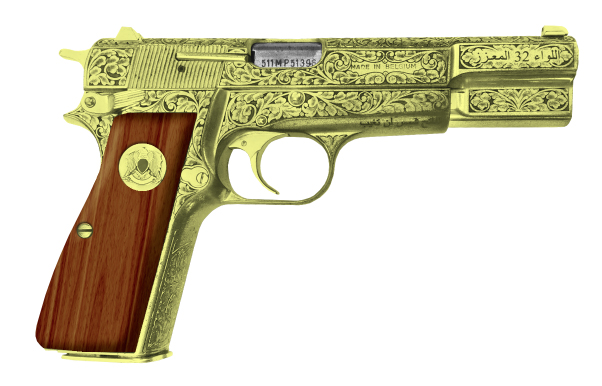
That led FN Herstal to reintroduce FN Hi-Power and offer some new features such as a fully ambidextrous slide lock, simplified takedown method, enlarged ejection port, reversible magazine release, wider slide serrations, different colored finish offerings, and 17-round magazines.
Design
The Browning Hi-Power is a short recoil-operated pistol with an improved locking system, and John Browning first developed that. During firing, locking lugs on the barrel mate up with those on the slide. The barrel and slide lock and move back together for a short distance. After the barrel and the slide unlock. This locking system proved to be very successful.
Over the years, it has been used in a number of pistol designs. Sometimes it is used in various modified forms. The original Hi-Power military model is chambered for 9×19 mm ammunition. Additionally, there were models chambered for 7.65×21 mm and .40 S&W ammunition.
Originally the Hi-Power pistol was quite expensive, as it required precise manufacturing. Over time its production and mechanics were simplified and became available to the wider public. All variants of this pistol have a single-action trigger, except the one produced in the 1980s when FN Herstal developed a version with a double-action trigger. It was referred to as HP-DA and is still produced by FN Herstal. A manual safety switch was originally located on the left side of the frame.
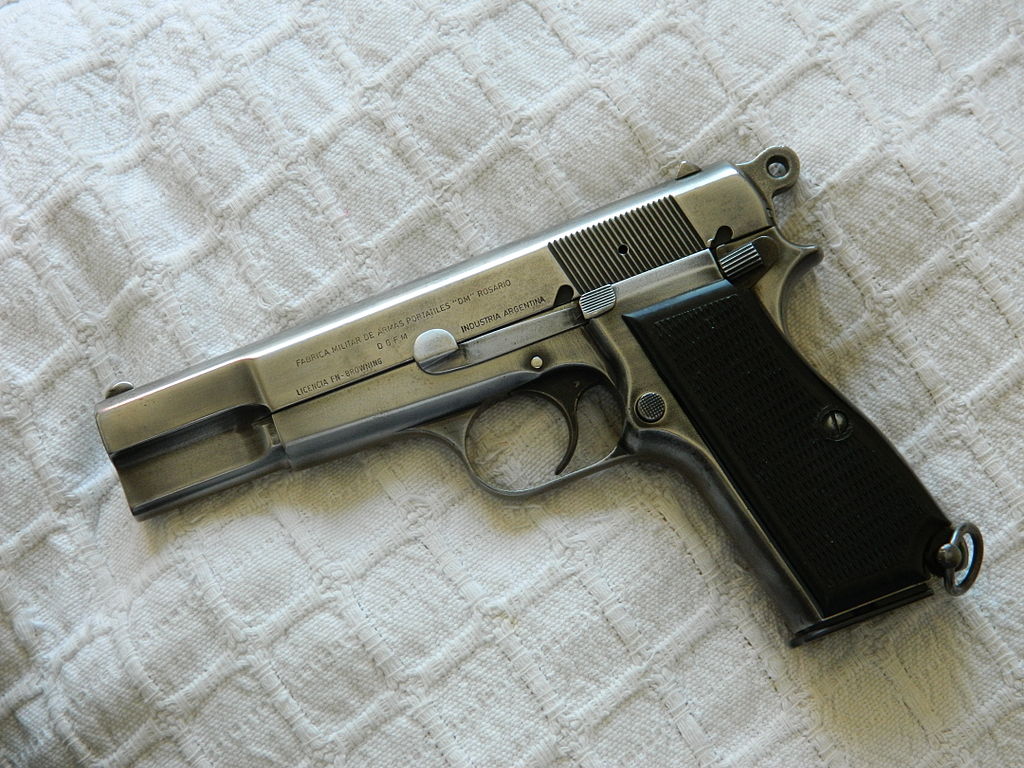
However, later production models have ambidextrous safety on both sides of the frame and an internal firing pin safety. An original rounded hammer was replaced in 1972 by a spur hammer. The Hi-Power is fed from a 13-round magazine. It may not sound much today, but in the 1930s, it was near twice the capacity any other contemporary pistol could offer. The name “Hi-Power” actually alludes to the high magazine capacity.
The magazine was designed by FN designer Dieudonne Saive. It has a staggered design that increases capacity without a drastic increase in magazine size or length. The commercial model chambered in.40 S&W ammunition has a magazine capacity reduced to 10 rounds.
Variants
Originally the FN produced this pistol in two models. One model had a fixed rear sight. Another model had a larger front sight and adjustable rear sight, intended for more accurate shooting. The sight can be set at a range of 50 to 500 meters. A wooden holster could be attached to the grip as a shoulder stock. Such pistols were produced before WWII.
The effective range of the Hi-Power pistol is about 50 meters. Even though the Hi-Power is one of the best combat pistols, it faces a top challenge from modern designs, such as a Glock 17.
Technical specifications
| Country of origin: | Belgium |
| Manufacturer: | FN Herstal |
| Entered service: | 1935 |
| Caliber: | 9×19 mm Parabellum |
| Weight (empty): | 882 g |
| Length: | 200 mm |
| Barrel length: | 118 mm |
| Muzzle velocity: | 350 m/s |
| Muzzle energy: | 500 Joules |
| Magazine capacity: | 13 rounds |
| Sighting range: | 50 m |
| Range of effective fire: | 50 m |
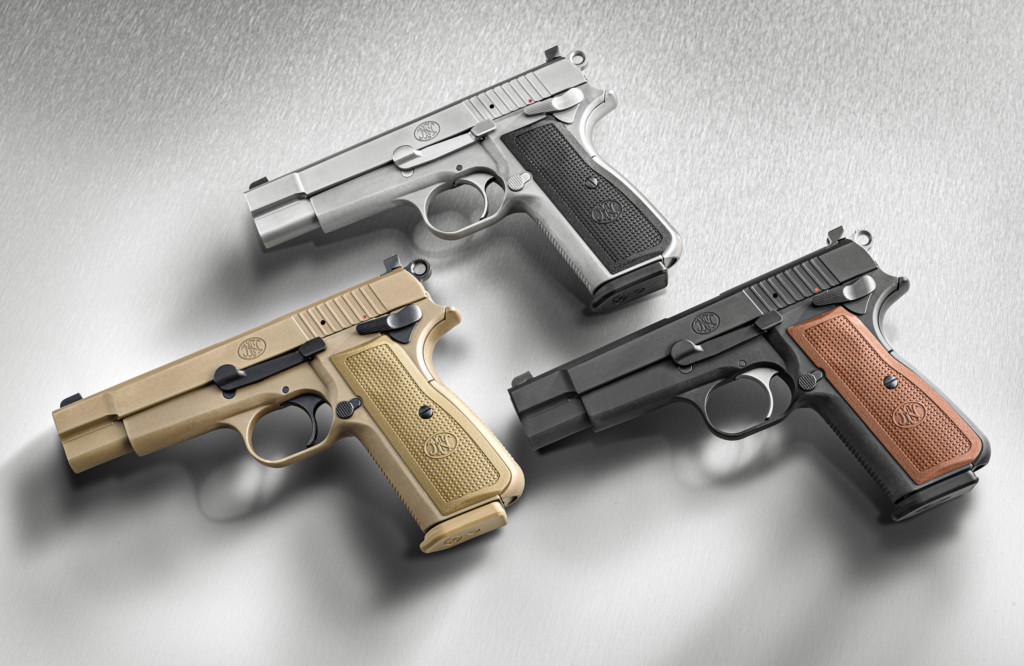
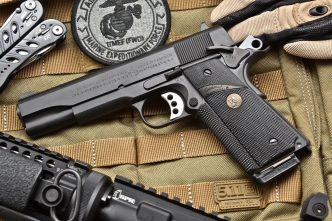
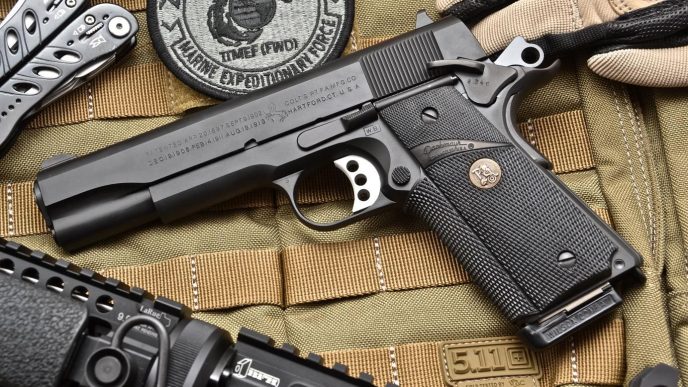
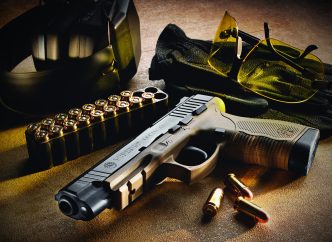
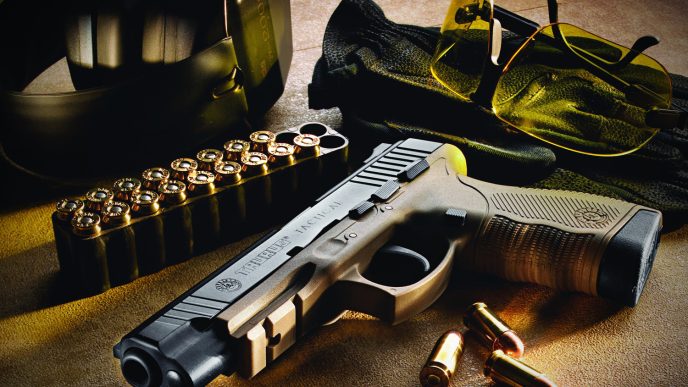
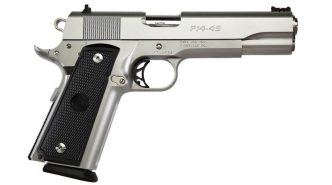
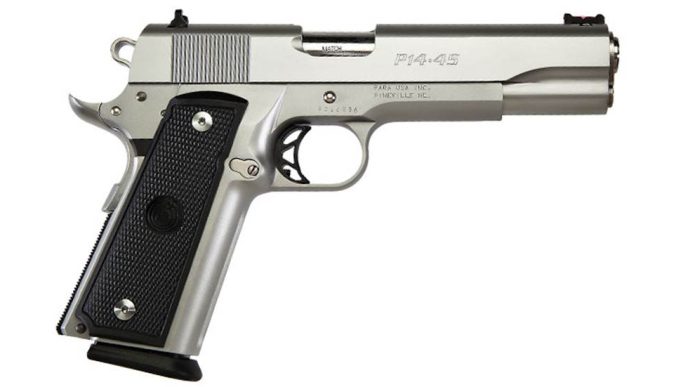
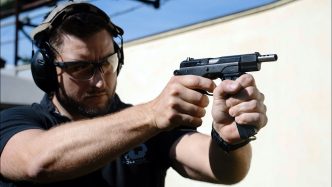
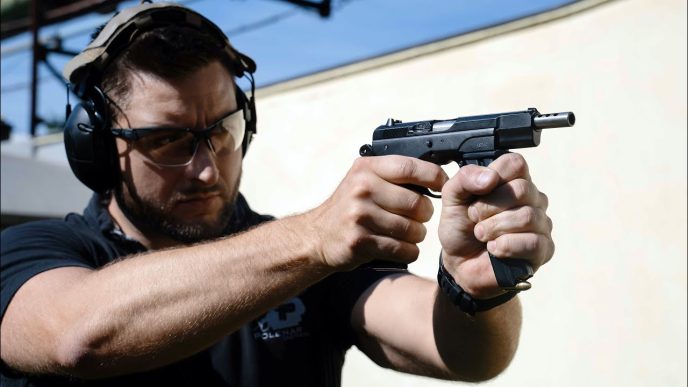
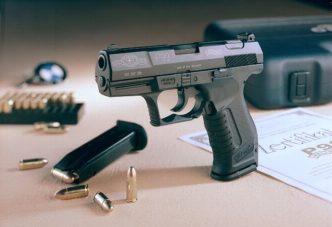
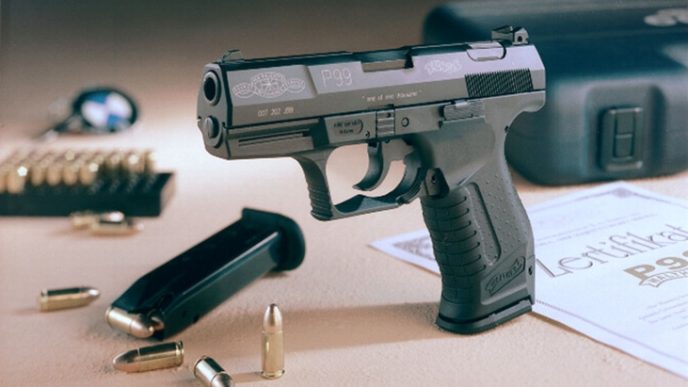
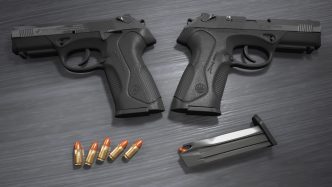
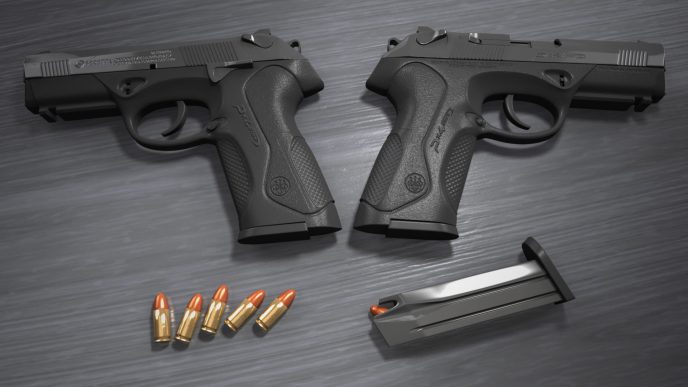
Price
Simple design, accurate, easy breakdown!
31 years good service. Still going strong.
Poorly written and incorrect: Browning did not design the Hi Power. The gun he was working on in 1926, when he died, was completely different: hammerless and stroker fired. Give Saive the correct he deserves. And do some homework.